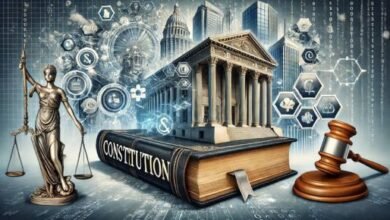15 Questions About Judicial Review You Should Know
General Knowledge
What is judicial review? Judicial review refers to the courts’ power to decide whether or not a law, policy, or executive action is in keeping with the constitution or other rule of laws.
Why is judicial review important to a democracy? It acts as a check and balance on both legislative and executive departments so that all laws and actions conform to the constitutional principles.
Which courts have the power of judicial review? Generally, higher courts such as constitutional courts or supreme courts have this power, depending on the jurisdiction.
Where did judicial review originate? The concept began in the early 17th century in England but was established in the U.S. through the landmark case Marbury v. Madison (1803).
The main difference between judicial review and judicial activism is that judicial review is used to determine whether a law is constitutional, while judicial activism involves judges interpreting laws to reflect current values or resolve social issues.
Read Also:
- https://legalsagehub.com/10-essential-questions-about-fundamental-rights-and-duties/
- https://legalsagehub.com/6-key-questions-about-constitutional-amendments-explained/
- https://legalsagehub.com/8-frequently-asked-questions-about-the-bill-of-rights/
Legal Framework
Key principles of judicial review are rule of law, separation of powers, and the supremacy of the constitution.
The actions that can be challenged through judicial review include legislative enactments, executive orders, administrative actions, and decisions of lower courts.
What is the difference between constitutional and administrative judicial review? Constitutional review checks whether laws violate constitutional provisions, while administrative review checks if government actions comply with administrative laws.
Can judicial review overturn a law? Yes, courts can nullify a law deemed unconstitutional or inconsistent with higher laws.
What are the limitations of judicial review? They can include political considerations, judicial restraint, and the scope of the constitution or enabling statute.
Global Perspective
How does judicial review function in other countries? The scope and application vary; for example, the U.S. has robust judicial review powers, while courts in the U.K. can’t invalidate parliamentary statutes but can review executive actions.
What role does judicial review play in international law? In some cases, international courts, like the International Court of Justice, engage in a form of judicial review for treaty compliance.
How does judicial review influence human rights? It ensures laws and policies respect individual rights and freedoms, acting as a safeguard against abuses of power.
Case Law and Criticisms
What are some landmark cases involving judicial review?
Marbury v. Madison (U.S.): Established judicial review.
Brown v. Board of Education (U.S.): Overturned racial segregation laws.
Roe v. Wade (U.S.): Expanded privacy rights.
Cases like Minerva Mills Ltd. v. Union of India in India reaffirm judicial review in constitutional democracies.
Criticism of judicial review: It can lead to judicial overreach, undermine legislative intent, and concentrate too much power in the judiciary.
